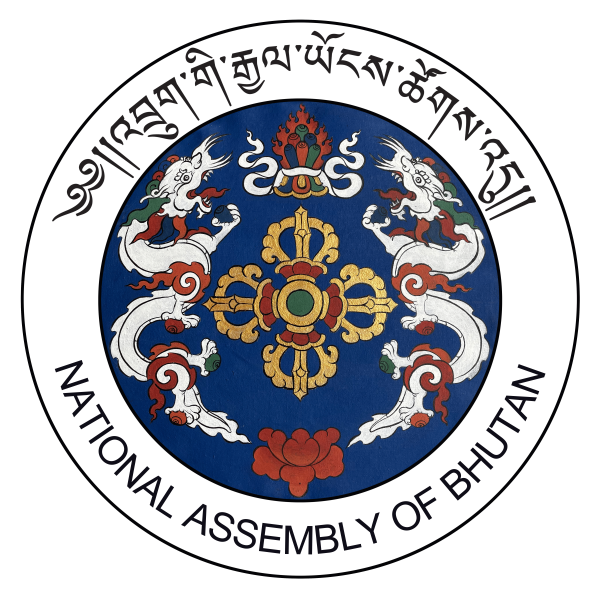
Question Hour for Ministeries in Group C
In the Question Hour for the Ministers under Group C, a total of seven questions were tabled. Four Questions for oral responses and three for written responses. Three questions were directed to the Minister for Finance (MoF) and one question to the Prime Minister and two for written responses to the Minister for Finance and one for written response to the Prime Minister.
The Member from Nanong-Shumar constituency questioned the Minister for Finance on the government’s pledge to provide low-interest loans for housing and vehicle purchases and plans to finance up to 90% of residential mortgages at a 4% interest rate and increase the ceiling for auto loans to 80%.
The Finance Minister clarified that low-interest loans for vehicle purchases are not part of the Economic Stimulus Program (ESP), which is primarily aimed at boosting trade, business, and manufacturing sectors. However, he confirmed that housing loans are being prioritized under the ESP, recognizing that the lack of home ownership is a major factor behind rising attrition and emigration. The government plans to soon implement support for residential mortgages, and all pledges, including this, are aligned with the 13th Five-Year Plan and will be fulfilled accordingly.
On the pledge for interest-free loans for farm machinery and Jersey cows, the Minister stated that while the pledge remains, financial sustainability requires a 4% interest rate to avoid losses for banks and protect foreign reserves. The Prime Minister acknowledged the issue and emphasized the importance of housing and education loans as key priorities under the ESP to improve citizens' well-being and curb youth migration. He added that discussions are ongoing with the Government of Japan to support the Jersey cow program, which targets poor farmers, with assessments currently underway for its implementation.
The Member from Lamgong-Wangchang Constituency questioned the Minister for Finance on the need for a mandatory online payment system for tourists. He noted that recent reforms in Bhutan’s tourism policy, including the revision of the Sustainable Development Fee (SDF) and the shift to more flexible travel options, had led to increased instances of untracked cash transactions, tax evasion, and foreign currency leakage. The Member asked whether the government would consider implementing a mandatory online payment system integrated with Tax Deducted at Source (TDS) and financial monitoring mechanisms.
In response, the Finance Minister acknowledged the concerns and emphasized that significant reforms have been introduced in the tourism sector to improve the overall system. He assured the House that the government will not allow activities such as tax evasion and untracked financial transactions to go unchecked, and that necessary actions will be taken as per the laws and regulations. He added that relevant agencies are currently working on new measures to strengthen monitoring systems and curb such practices.
The Prime Minister further elaborated that while online payment systems can indeed enhance financial transparency and reduce tax-related issues, their implementation is hindered by infrastructure gaps and high service charges, particularly in hotels and tourism businesses that lack card reader facilities. He noted that the government has conducted multiple stakeholder consultations to improve the system. Importantly, he highlighted that the Royal Monetary Authority (RMA) is working with international partners and has begun piloting India’s Unified Payments Interface (UPI) in Bhutan. This system allows for direct, card-less payments similar to mobile banking, and early results from the three-month trial have been encouraging. The RMA is now exploring UPI as a viable long-term solution to strengthen financial transparency in the tourism sector.
The Member from Wamrong Constituency questioned the Minister for Finance on the high rates of vehicle import taxes, which currently range from 100% to 205% depending on engine capacity, as prescribed in the Tax Act of 2022. The Member expressed concern that these steep taxes have made vehicle ownership increasingly unaffordable for many Bhutanese citizens, particularly those from middle- and lower-income groups. In the absence of a reliable and efficient public transportation system, the Member asked whether the government would consider reviewing and reducing the current import duties to make vehicles more affordable.
In response the Finance Minister explained that the government is introducing tax reforms under the upcoming Excise Tax Bill 2025, aimed at promoting eco-friendly vehicles, discouraging fuel-intensive ones, and taxing heavy vehicles more heavily due to their environmental impact. He acknowledged the lack of reliable public transport and assured that affordability for middle- and lower-income groups has been taken into account. Accordingly, the new bill keeps tax rates low for small and mid-sized vehicles, with a shift from CIF to FOB valuation for Indian imports to reduce the taxable value and overall tax burden. While a drastic reduction was not feasible, a 9–10% cut in taxes for smaller vehicles has been made, with efforts ongoing to address inflated vehicle prices through review of the point-of-sale system.
The Member from Khar-Yurung Constituency questioned the Prime Minister on the outcome of the high-level committee formed to review the employment conditions of contract employees. He referred to the Prime Minister’s statement during the Second Session, wherein he had informed the House that discussions were underway with the Royal Civil Service Commission (RCSC) regarding the introduction of a para-regular service category. The Member sought an update on whether the government had reached a final decision on the matter.
In response, the Prime Minister stated that a high-level committee had reviewed the current system and submitted recommendations to the RCSC. Based on these, the RCSC approved extending contract terms from three to five years under a new para-regular category, with possible future extensions. Contract employees will also receive a 15% Pay Provident Fund benefit upon service completion, subject to approval by the Pay Commission. The Prime Minister added that contract staff will continue to enjoy benefits similar to regular civil servants, including leave and healthcare entitlements, and the government has requested further review for potentially extending contracts beyond five years.
Comment
You May Also Like
Vote / Poll
How should the government react to Bhutanese leaving to Australa ?





